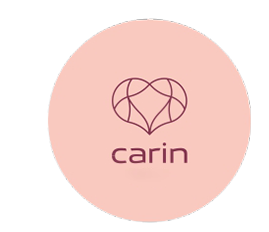Your Cart is Empty
Free and Discreet Shipping in the Netherlands! Shipping Worldwide.
Free and Discreet Shipping in the Netherlands! Shipping Worldwide.
Boost your body’s collagen naturally with food
August 18, 2025 2 min read

Collagen is one of the most important proteins in the body, acting as the “glue” that keeps skin firm, joints flexible, and connective tissues strong. As we age, collagen production naturally declines, leading to wrinkles, sagging skin, and joint stiffness. The good news? Your diet can play a key role in supporting collagen levels and keeping your body youthful from the inside out.
Foods That Contain Collagen
Some foods provide collagen directly, usually derived from animal connective tissues. Bone broth is a standout, made by simmering bones for hours to extract collagen, gelatin, and amino acids like proline and glycine. These compounds help support skin elasticity and joint health.
Chicken skin and cartilage are also rich sources of collagen, often used in soups or stocks to get a natural protein boost. Similarly, fish skin and scales, such as salmon skin, contain collagen and are increasingly used in both cooking and supplements. Gelatin, derived from animal collagen, is another way to consume this vital protein, often found in desserts, jellies, or used as a cooking ingredient.
Foods That Support Collagen Production
Even if a food doesn’t contain collagen directly, it can still help your body produce more. Protein-rich foods such as eggs, lean meats, dairy, and legumes provide amino acids essential for collagen synthesis.
Vitamin C is a crucial nutrient for collagen formation. Citrus fruits like oranges, lemons, and grapefruits, along with berries, kiwi, pineapple, and bell peppers, help stimulate collagen production naturally.
Minerals like zinc and copper also support collagen formation. Nuts, seeds, shellfish, and whole grains are excellent sources of these nutrients.
Certain foods help protect existing collagen from damage. Omega-3 fatty acids, found in salmon, mackerel, and chia seeds, reduce inflammation that can break down collagen. Anthocyanin-rich foods, such as cherries, grapes, and blueberries, help maintain collagen integrity. Even garlic, with its sulfur content, contributes to collagen production.
Conclusion
Maintaining healthy collagen levels doesn’t require expensive supplements or treatments. A balanced diet rich in collagen-containing foods and collagen-boosting nutrients can naturally support your skin, joints, and overall vitality. By incorporating bone broth, protein-rich foods, vitamin C fruits, nuts, seeds, and fish into your meals, you give your body the tools it needs to produce collagen efficiently.
Eating for collagen isn’t just about beauty—it’s about overall health. By choosing the right foods, you can support a youthful appearance, flexible joints, and strong connective tissues for years to come.
Leave a comment
Comments will be approved before showing up.
Subscribe
Sign up to get the latest on sales, new releases and more …
